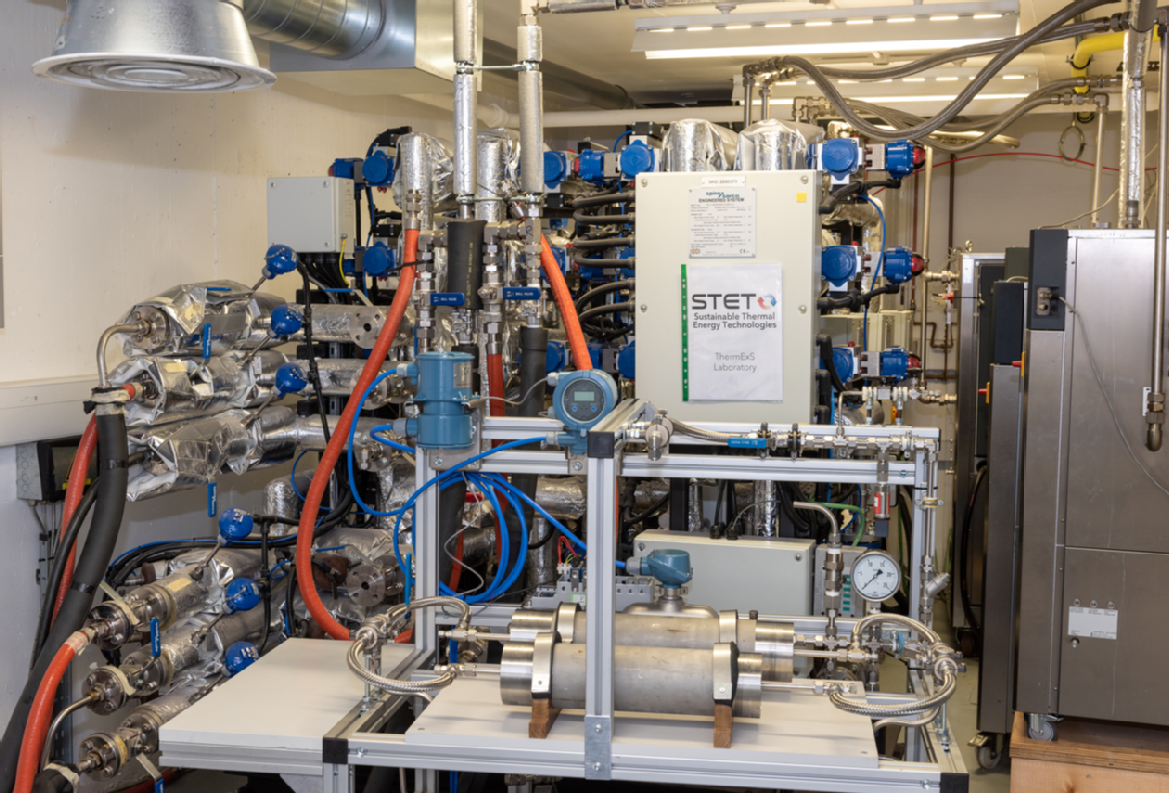Decarbonising Home Heating

Gas-fired heat pumps
How do we decarbonise heating? Heating and cooling accounts for more than a third of UK CO2 emissions, with domestic heating alone accounting for 15%. It is widely regarded as one of the most difficult areas to tackle. Electric heat pumps can make use of renewable electricity, but there are many pitfalls to be overcome before they can be widely adopted. The capacity of the electrical grid would have to be at least doubled, even before the electrification of transport is considered. The UK also has many ‘hard to treat’ homes with high heat losses and high temperature heating systems in which electric heat pumps typically perform poorly. Added to all this, the supply of renewable electricity is highly variable and significant storage, either electrical or thermal, would be required.
The Sustainable Thermal Energy Technologies (STET) group have developed a gas-fired heat pump that can be retrofitted to homes as a direct replacement to a conventional gas boiler, but with 30-40% less fuel consumption, running costs and emissions. The system is driven by heat from gas and achieves more than 100% ‘efficiency’ by pulling in heat from the outside air or the ground.
In the short to medium-term, it will reduce CO2 emissions while the necessary electrical grid improvements are made. In the longer term, the system could equally use hydrogen or biogas and reduce the amount of sustainable fuel required.
The challenge
The major challenge was to develop a system that is compact and low-cost enough to be a viable alternative to a gas boiler, while still maintaining enough of an efficiency advantage. The solid-gas reactor design, the cycle and the operating strategy must balance the trade-off between power density (which relates to size and capital cost) and efficiency (which relates to running costs and emissions).
Our approach
The major development drive began during the PhD work of Drs Steven Metcalf and Ángeles Rivero Pacho, and continued on into their work as PDRAs on the EPSRC projects CALEBRE and i-STUTE.
The approach taken was to develop and experimentally validate finite-difference models of the components, cycle and system in MATLAB to establish the optimal design. The team have developed several patented solid-gas reactor designs (required for the ‘thermal compressor’ of the heat pump) that have achieved World leading power densities. This has led to reductions in size and cost that now make the system commercially viable.
Laboratory work progressed from testing of components, through to sub-systems, before testing of a system driven by electrical input. The work was made possible by £2M test facilities and analytical equipment funded through the Midlands Energy Research Accelerator (ERA).
The work has now culminated in a £2M grant from the Department for Business, Energy & Industrial Strategy (BEIS) to develop a production-ready system for testing in our environmental chambers. Dr Metcalf worked in conjunction with design for manufacture consultants in the West Midlands and component manufacturers in the heating industry.
Our impact
The production-ready system is currently undergoing testing in our environmental chambers and will be used to market the system to potential manufacturers (most likely gas boiler manufacturers).
The low-cost, production-ready components developed will be of huge benefit to the thermally driven heat pump community. Several research and industrial institutions across the World are developing gas-fired heat pumps based on various competing cycles, but they all have many components in common. It is almost certain that a gas-fired heat pump will reach the domestic market within the next few years.
The work was disseminated through the European Heat Pump Association’s (EHPA) working group on Thermally Driven Heat Pumps and IEA Annex 43. The IEA work led to a number of reports for BEIS, produced by Dr Metcalf and the group’s lead Professor Critoph, which helped shape BEIS policy on domestic heating in particular. The work of the IEA annex brought attention to the role that gas-fired heat pumps can play in the future of heating and resulted in their direct inclusion in BEIS future energy scenarios and in funding calls.
Contact
For more Information on the gas-fired heat pump development, contact Dr Steve Metcalf
STET has many projects seeking to transform heating technologies across all sectors. For more information on the work, visit our webpage: STET
For use of STET’s ERA thermal testing facilities contact Jake Locke

